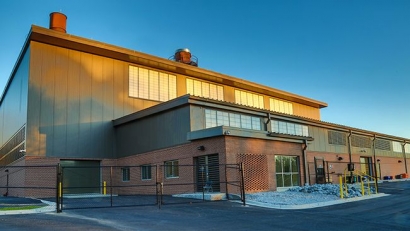
The U.S. Department of Energy announced that it awarded Siemens Energy a $200,000 grant for the research initiative.
The pilot project, called H2-Orange – a nod to hydrogen gas and the collaboration with Clemson University – will ramp up in March 2021 and include studies on hydrogen production, storage and co-firing with natural gas.
The studies will evaluate multiple forms of hydrogen production, including green hydrogen, which is created from water and has no byproducts. Hydrogen also has the potential to store larger quantities of energy more efficiently and for longer durations than current lithium-ion battery technology.
“We look forward to developing an advanced hydrogen energy storage system to reduce the carbon footprint on the Clemson University campus, while optimizing the cost of energy for the campus and microgrid,” said Richard Voorberg, vice president of global service operations at Siemens Energy. “We want to be a driver of the energy transition, and this is a great step toward building reliable and efficient clean energy infrastructure in the U.S.”
This unique arrangement combines the experience, expertise and perspectives of Siemens Energy as the technology developer, Clemson University as the beneficiary and Duke Energy as the owner and operator of the asset.
Siemens Energy will study the use of its Silyzer electrolyzer to produce hydrogen fuel to help power the existing SGT-400 natural gas turbine at the Clemson plant. The Silyzer can use renewables and clean energy sources to create hydrogen without producing emissions. Clemson University will lead the integration of hydrogen into the campus grid and ensure energy needs are met, and Duke Energy will provide operational, engineering and grid modeling expertise. Duke Energy also expects the results of the study to be applicable to its larger combustion turbine fleet.
“Hydrogen integration is a possibility at many of our natural gas stations,” said Regis Repko, Duke Energy’s senior vice president and chief fossil/hydro officer. “The best way to innovate is through teamwork, and this research could influence the future of energy – reducing reliance on fossil fuels, decreasing energy costs and benefiting the environment and all energy users.”
For years, Duke Energy has actively evaluated hydrogen as a low- or no-carbon fuel source to help the company meet its bold net-zero carbon goal by 2050. Siemens Energy and Clemson University also have net-zero carbon goals to reach by 2030.
“This collaboration supports our institutional goal to be carbon neutral while advancing the development of energy technologies that could have far-reaching societal benefit,” said Tanju Karanfil, Clemson University vice president for research. “We are proud to collaborate with industry leaders Duke Energy and Siemens Energy and appreciate their interest in this project.”

